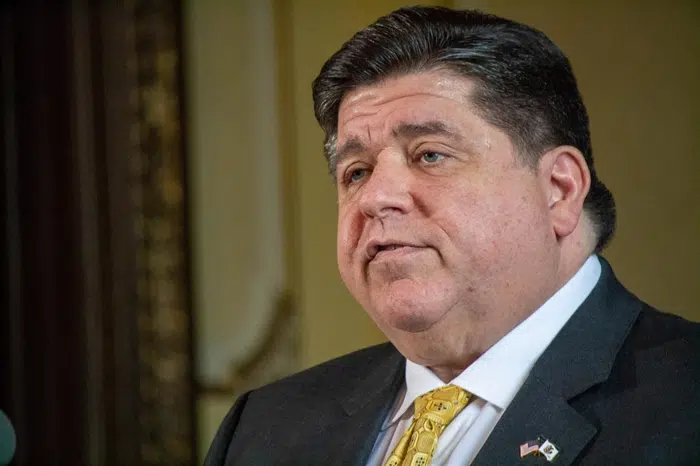State emergency orders will end in tandem with national public health emergency
By HANNAH MEISELCapitol news Illinoishmeisel@capitolnewsillinois.com
SPRINGFIELD – Exactly 38 months after the World Health Organization declared COVID-19 a global pandemic, Illinois will no longer be under a disaster proclamation as of May 11, Gov. JB Pritzker announced Tuesday.
That’s the same day President Joe Biden will end the national public health emergency, which just passed the three-year mark last week. The White House announced the May 11 end date on Monday.
Pritzker had declared a public health emergency two days before the WHO’s pandemic determination and has renewed his disaster proclamation every 30 days since then.
The repeated proclamations gave the governor authority for COVID-related actions such as closing schools, issuing stay-at-home orders, and mandating masks and vaccines. But they were a source of consternation for Pritzker’s political opponents.
The governor had slowly rolled back his COVID-19 mandates over the past year, including an action in October when he reversed the requirement for vaccines, testing, and masks in healthcare settings.
But Illinois is still one of seven states with some sort of COVID-related emergency proclamation on its books.
These disaster declarations have allowed those states – including Republican-run Texas – to continue benefiting from COVID-era bumps in federal reimbursements for programs like Medicaid, additional benefits for those on food stamps, and the ability to quickly deploy emergency workers to respond to areas in need, like hospitals with severely short staffing.
“Our state’s disaster proclamation and executive orders enabled us to use every resource at our disposal from building up testing capacity and expanding our health care workforce to supporting our vaccine rollout and mutual aid efforts,” Pritzker said in a statement.
Pritzker said 1.4 million children in Illinois received nutrition support under the additional Supplemental Nutrition Assistance Program benefits. He also pointed to the expansion of telehealth during the pandemic under his disaster proclamation, which has largely been adapted into state law after it proved popular with doctors and patients alike.
“Let me be clear: COVID-19 has not disappeared,” Pritzker said in the statement. “It is still a real and present danger to people with compromised immune systems—and I urge all Illinoisans to get vaccinated or get their booster shots if they have not done so already.”
Opponents to Pritzker’s repeated issuance of disaster proclamations insisted the governor was limited to the 30 days laid out in state law, but legal challenges to that effect ultimately failed after months of litigation.
The governor’s disaster proclamation also allowed for the activation of the State Emergency Operations Center, which brokered cooperation between the leaders of different state agencies in response to COVID-19.
In a message to Congress on Monday, Biden wrote that waiting until May to end the national public health emergency will avert “wide-ranging chaos and uncertainty throughout the health care system” than if it faced the “abrupt end” sought by the Republican-controlled House.
Capitol News Illinois is a nonprofit, nonpartisan news service covering state government. It is distributed to more than 400 newspapers statewide, as well as hundreds of radio and TV stations. It is funded primarily by the Illinois Press Foundation and the Robert R. McCormick Foundation.


